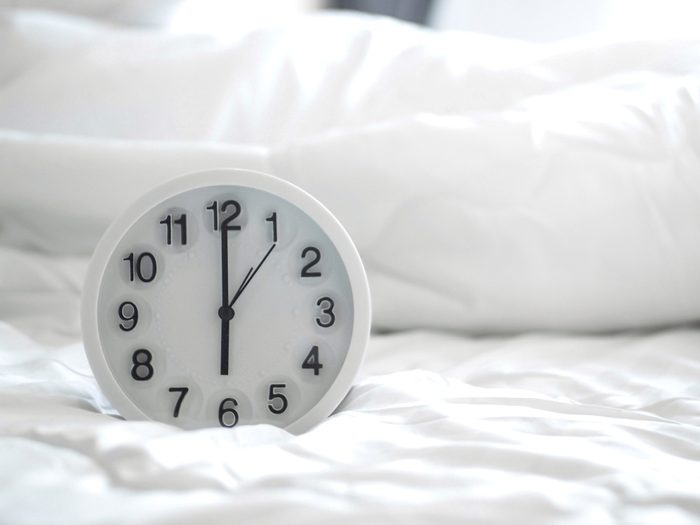
Eating after 6 p.m. leads to weight gain
While late-night eating has been linked to weight gain, putting a cut-off time on eating doesn’t ensure diet success. In reality, putting restrictions on when you cannot eat doesn’t align with modern lifestyles, as many people don’t get home from work early enough to follow time restrictions, explains Susan Kraus, clinical dietitian at Hackensack University Medical Center in New Jersey. “The problem lies in what and how much you eat,” says Kraus. “After a tough day at work, people tend to reward themselves with food or they may have not eaten well during the day and feel they have to make up for it.” The best strategy for eating at the end of the day is to plan ahead and be aware of how much you are eating in the evening. Having a healthy snack later in the day can help curb your appetite and prevent overeating at dinner, while eating small, nutrient-rich meals rather than large mixed meals before bed has been shown to be beneficial, helping with morning metabolism and satiety.
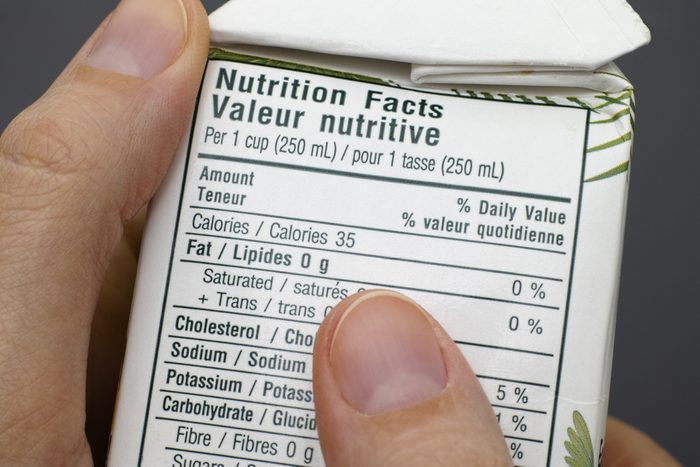
Fat-free and low-fat foods are better for weight loss than those that have fat
Many people look at the word fat-free on the label and think that it means fewer calories, says Grace Derocha, a registered dietitian at Blue Cross Blue Shield of Michigan. “But often fat-free foods have more calories.” When you take the fat out of any processed food item, because of food science, you usually have to fill it with other ingredients, and those other ingredients are usually sugar, sugar alcohols, sugar substitutes, or sodium, she explains. It’s important to read the labels and look for healthier choices at the supermarket. While the American Heart Association recommends limiting saturated fat intake to no more than five to six percent of total calories (that’s about 11 to 13 grams of fat per day based on a 2,000 calorie-a-day diet), cutting the fat by eating low-fat foods with high-sugar content has been shown to cause weight gain, liver damage, and brain inflammation. You also need to be aware of foods labeled “sugar free,” says Derocha. “Sugar-free foods are not necessarily carbohydrate free.”
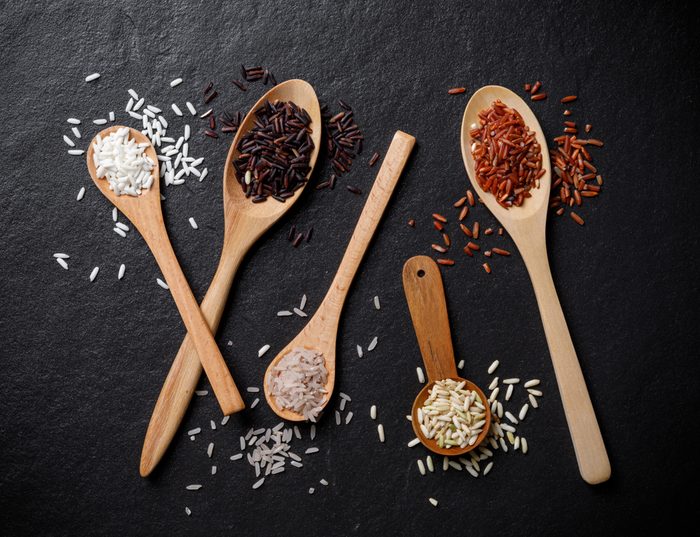
Eating too many carbs will make me fat
Eating too many carbs may cause weight gain, says Derocha, but the weight gain would be due to consuming too many extra calories, not from the carbohydrates. Carbohydrates are an important food source for healthy nutrition—they fuel our bodies, she says. The Office of Disease Prevention and Health Promotion recommends that carbohydrates make up 45 to 65 percent of the calories in our daily diet. Fruits, whole grains, brown rice, oatmeal, beans, nuts, and quinoa are all foods rich in carbohydrates, yet none of these foods will cause weight gain on their own, says Derocha. Check out these 7 other healthy carbs that nutritionists want you to eat.
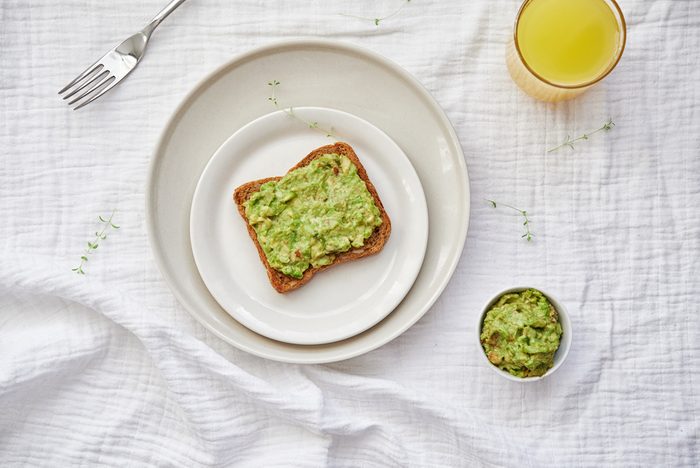
Skipping breakfast will help me lose weight
If you are not a breakfast person, you shouldn’t force yourself to eat, but skipping meals will catch up with you later on, says Kraus. “Some people feel they can justify having a larger meal later on because they have skipped breakfast, but when you skip meals, it causes stress—you think more about food, you go into ‘diet mode,’ and that sets up a cascade of negative feelings.” Worse, research shows that skipping breakfast has many effects on your body and can actually lead to weight gain and elevate your cholesterol levels. “Skipping breakfast can decrease your caloric intake for the day, but in the long run, it can slow down your metabolism, ” says Derocha. “You don’t want to slow down your metabolism by putting your body in starvation mode—it confuses the body.”
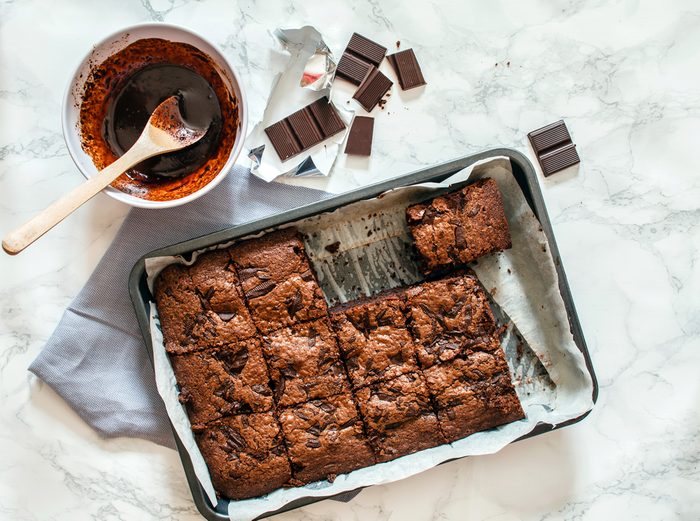
No treats allowed
When you start restricting yourself from certain foods, you become more likely to binge eat on those foods that you tried to go without, says Derocha. “It’s important to have a good relationship with foods and to practice being patient and kind to your body,” she says. “I tell my clients that it takes more than one treat or meal to make you overweight, just like it takes more than one workout to make you fit.” Kraus uses a stoplight analogy with her patients. Green foods are the “go” foods, manufactured foods such as cheese are the yellow or “caution” foods, and treats are the red foods. “You can have one, but stop and think about it before you do rather than not have it.” Consider these delicious nutritionist-recommended treats to help beat your sugar cravings.
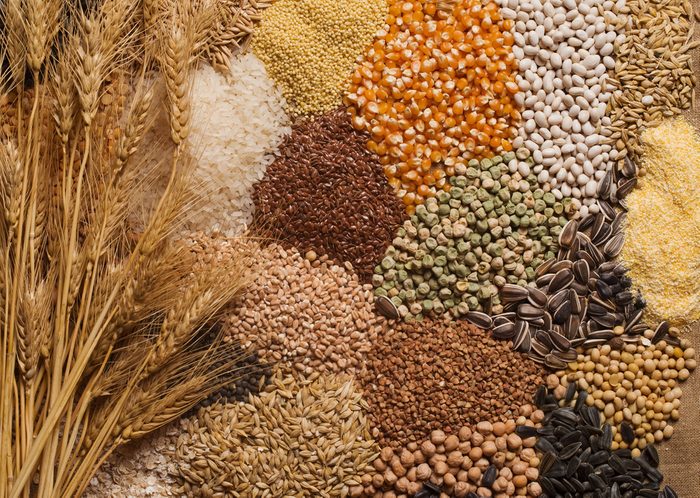
A gluten-free diet will help me lose weight
If you have celiac disease or are allergic to wheat or gluten, then a gluten-free diet may be medically necessary, says Kraus. “But I do not recommend a gluten-free diet if it is not necessary because it is restrictive.” There are health risks associated with going gluten-free including an increase in type 2 diabetes. Naturally gluten-free foods such as legumes, vegetables, and fruits are part of a healthy diet, but people often buy gluten-free cookies and muffins because they think they are healthier than traditional foods, says Kraus. “Gluten-free foods can have the same or more calories, and they also may contain more fat or sugar, added to make the food more palatable.” Wheat products, which contain the protein gluten, can be beneficial for weight loss because they have more fiber, says Derocha. “This fiber digests slowly to keep us full longer, while also aiding the system as a prebiotic (carbohydrates that cannot be digested) to help keep us regular and rid the body of waste,” she says.
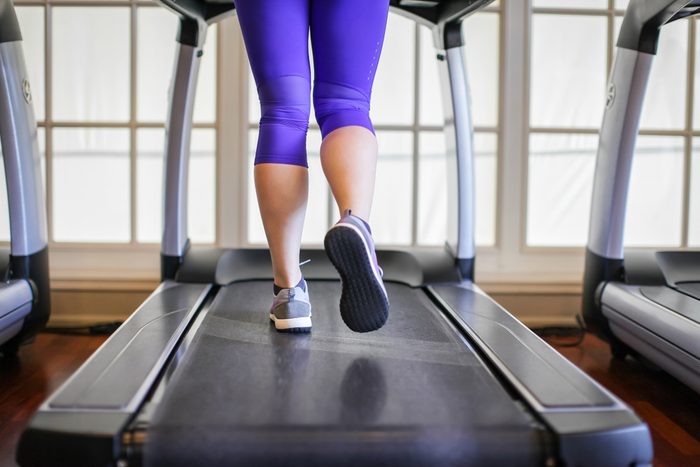
I have a slow metabolism, so I can’t lose weight
True, if you have a slower metabolism, then it will be more difficult to lose weight, but there are a variety of ways to boost your metabolism, says Derocha. Exercising regularly and consistently fueling your body with healthy foods are two ways to increase your metabolism, she says. “Think of including both cardiovascular and resistance training exercise in your normal workout routine—for every pound of muscle you gain, you are able to burn 50 more calories per day.”

Cleansing is the best way to rid my body of toxins and jump-start a diet
While the cleansing and detox diets are all the rage, they do not help with weight loss over the long-term, says Derocha. According to the National Center for Complementary and Integrative Health, there isn’t any convincing evidence that detox or cleansing programs actually remove toxins from your body or improve your health. Practicing these types of diets can cause health problems such as electrolyte imbalance, dehydration, hunger pains, and headaches. “You do not need to do a juice cleanse/detox to help rid your body of certain toxins because our body has natural ways to detox—we have kidneys, a liver, and other organs,” says Derocha. While cleansing diets may be popular with celebrities, Derocha says consistency is the key to long-term weight loss. “I like to ask my clients, ‘if a diet works, then why are you on a new one every year or every other month?'” Don’t miss the 13 things experts won’t tell you about weight loss.
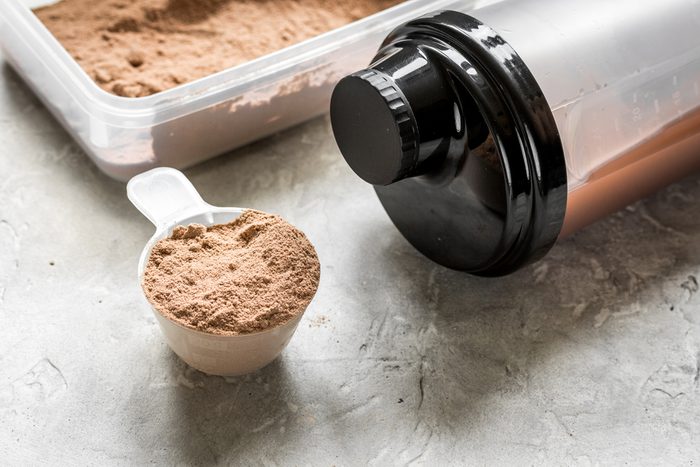
Dietary supplements are a quick way to lose weight
Dietary supplements come in many forms—pills, powder, liquids, and bars—and contain a variety of natural and manufactured ingredients. While approximately 15 percent of the adults in the United States have used some form of weight-loss dietary supplement, they are not a long-term solution for weight loss, says Derocha, because they play a part in yo-yo dieting, which has been proven to increase the risk for cardiometabolic disease. Using diet supplements creates false weight loss and increases your chances of gaining the weight back, as opposed to being consistent and living a healthy lifestyle, she says. According to the Federal Food, Drug and Cosmetics Act, dietary supplement firms do not need FDA approval before they start marketing their products. While it is the company’s responsibility to ensure its products are safe, seeing them on store shelves does not mean that they are. The FDA has reported that some weight-loss products have been associated with increased blood pressure, heart palpitations, stroke, seizure, and death. “Many supplements contain ingredients that give you the feeling of a caffeine boost, which can be bad for your heart, make you jittery, and cause sleeplessness, says Derocha. “And lack of sleep can increase cortisol or sustain cortisol, a hormone in the body that may increase weight or sustain abdominal fat.”
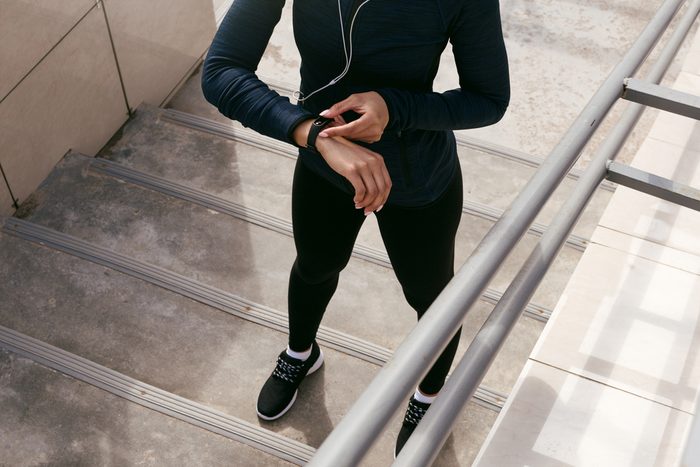
All I need to do to lose weight is exercise more
Hitting the gym for a tough workout seems like a great way to burn a lot of calories and lose weight, but at the end of the day, the reality comes down to simple math—you have to burn more calories than you eat if you want to shed the pounds. Physical activity is great for your mental and physical health—it helps lower your risk for many diseases—but when it comes to weight loss, research shows that caloric restriction is more likely to result in clinically significant weight loss than exercise alone. “When it comes to weight loss, healthy living and consistency will help you accomplish your health and wellness goals,” says Derocha. These are the 15 workouts that burn the most calories.
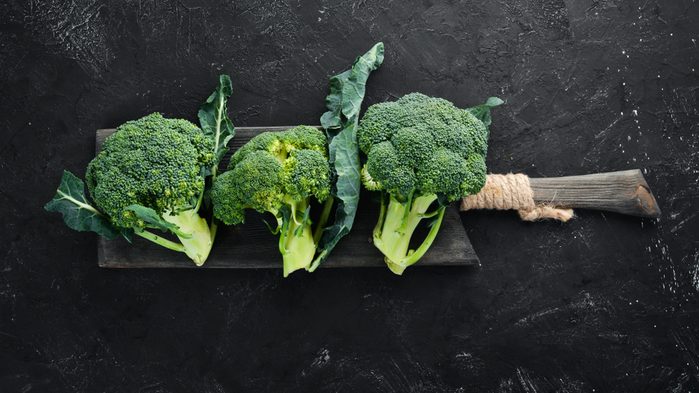
A calorie is a calorie
Scientifically, a calorie is a measure of energy, so a calorie from jelly beans contains the same amount of energy as a calorie from broccoli. But that’s where the similarities end, says Rachel Meltzer Warren, MS, RDN, a New York area-based nutrition writer, educator, and counselor. “The nutrients that provide your body with calories have very different impacts on your body,” she explains. “The differences affect how much you eat, and more. For instance, your body works harder to break down and use protein than it does carbohydrates,” she explains. In other words, you may be likely to burn up more of those protein calories, where you might burn fewer of the carbs and they could end up as fat. But that doesn’t mean you should swear off entire food groups: “Every nutrient plays important roles in the diet,” says Warren, who advises that people who are trying to lose weight to focus on eating a varied diet made up of nutritious foods they enjoy that also help them feel satisfied.
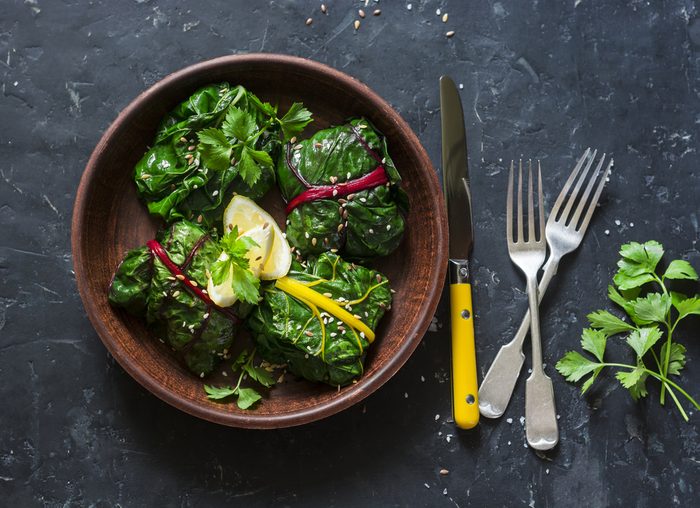
Going vegetarian is an effective weight loss strategy
It can be a very healthy way for some people to eat, but not for all—plus, there are plenty of overweight vegetarians and vegans. “It’s a misconception that a vegetarian diet is automatically a healthier one,” says Warren. “There are loads of vegetarian junk foods to choose from, and you could easily be a vegetarian and never touch a single vegetable. For many vegetarians, it’s actually harder to lose weight because they wind up replacing the meat on their plate with an overabundance of carbs, which are less satisfying.” The fact is, simply going on a vegetarian or vegan diet is not an effective weight loss strategy, and you can lose or gain weight on either of these diets, depending on your food choices. Just giving up animal products doesn’t mean you’ll automatically get thinner. Try one of these tiny diet changes that can help you lose weight.
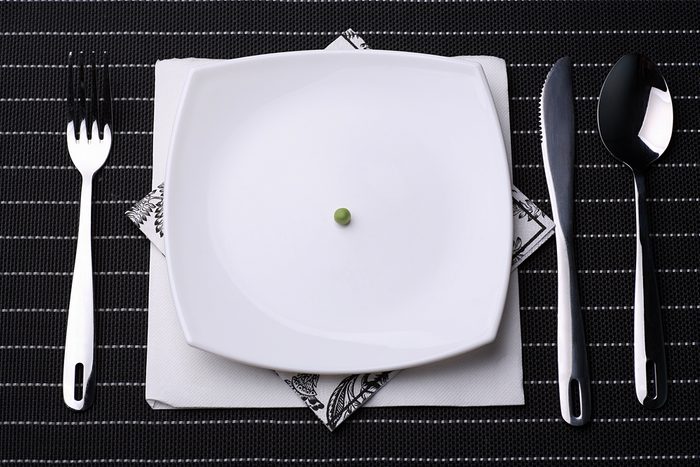
You won’t be able to lose weight unless you starve
Yes, you’ll probably lose weight if you’re eating so little that you’re hungry all the time, but there’s a better way. “You can only walk around hungry for so long before you become ravenous and overeat or even binge,” says Lisa Zucker, RDN, a Colorado nutritionist specializing in weight loss and wellness. “Then you feel guilt and shame, and it’s back to restriction…and so the pendulum swings.” Zucker says that if someone is limiting their food intake to the point of walking around hungry on a regular basis, they also risk losing lean muscle mass, which is counterproductive to feeling good and having energy. A good weight loss program will let you eat enough so you’re not constantly feeling hungry.
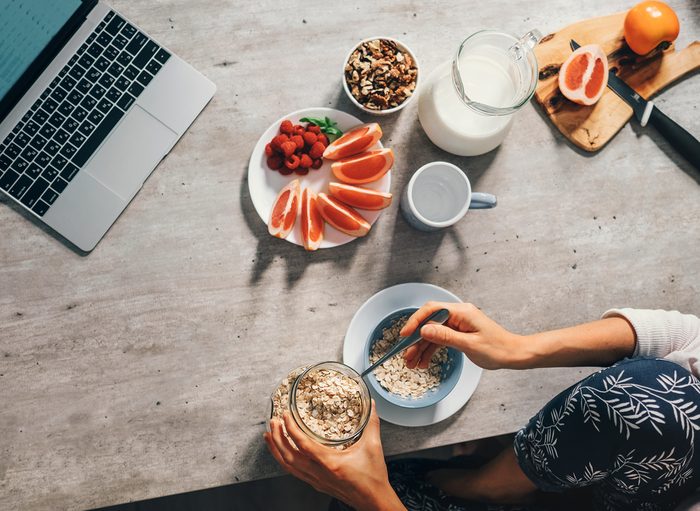
Eat lots of small meals instead of three big ones
Compelling research published in the journal Obesity found that mini meals won’t help you lose weight or lead to greater satisfaction, so the choice of how to eat meals is entirely up to you. “There is no one prescribed way we should eat, so it’s best to figure out what works best for your lifestyle,” says Zucker. She explains that some people don’t want to think about where their next snack is coming from—planning five small meals makes them feel obsessed with food. But others are more comfortable knowing that they will be able to eat every few hours to stay satisfied. “Either way, our bodies need to be fed approximately every four to six hours,” says Zucker. “Going longer than this can lead us to overeat when we finally sit down to a meal.” Check out these 30 healthy snacks that can help you lose weight.
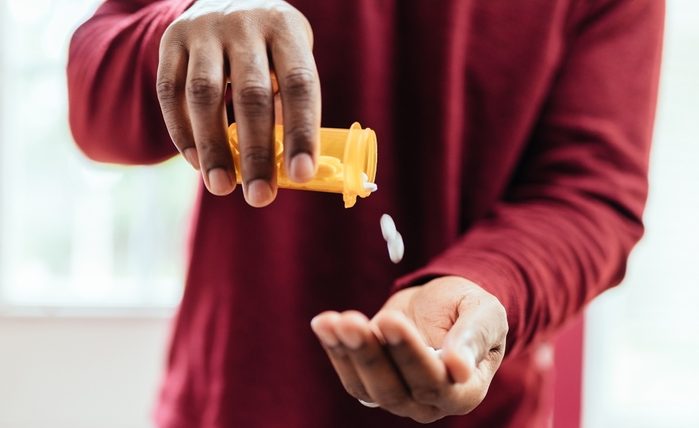
Probiotics can help you lose weight
There’s a lot of scientific interest in the body’s microbiome—the population of bacteria in the gut—and the probiotics that support it, but so far there haven’t been any studies yet that show probiotic foods or supplements will lead to weight loss. “This idea is unproven,” says Ginger Hultin, MS, RDN, a Seattle-based registered dietitian. “There are some interesting animal studies on the microbiome and weight, the microbiome and inflammation, the microbiome and the immune system. But as far as a direct link to weight…we’re not there yet.” Having a healthy gut is certainly important for health, and including foods like yogurt, kefir, pickles, sauerkraut, and others with natural probiotics in your diet is a great idea. But don’t assume that just eating these foods will lead to weight loss.
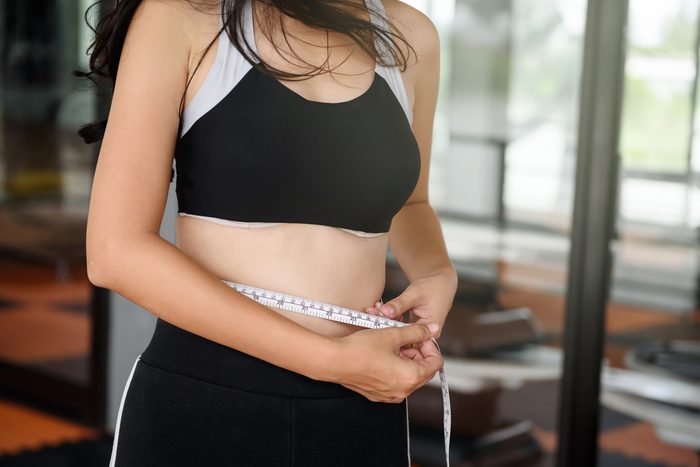
If your weight is okay, you don’t need to worry about diet
The body mass index (BMI), a number that combines your height and weight, is helpful as a general guideline, but it isn’t accurate for all people. “If you have a healthy BMI but you have central adiposity, an elevated waist measurement, you might have an elevated risk of cardiovascular disease,” says Hultin. You can also be above the ideal BMI and be completely healthy and not need to worry about losing weight. I think people need to take this number with a grain of salt.” Hultin recommends that people not just look at the BMI number, but also consider their overall lifestyle—drinking, smoking, cholesterol, exercising. Even more important is to consult a physician or registered dietitian for a health workup that will help indicate what your healthiest—and most attainable—weight might be.
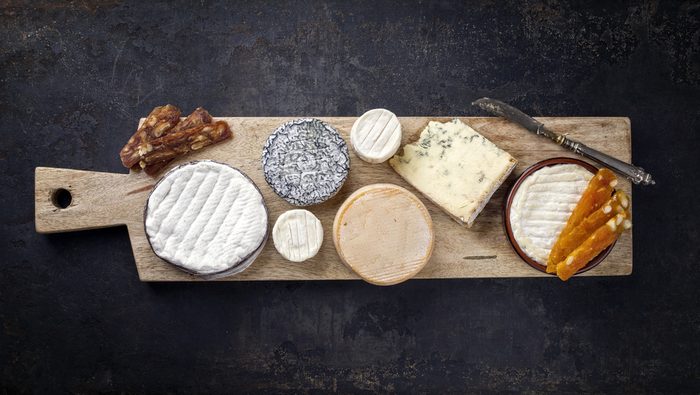
Dairy products cause inflammation and weight gain
While some people are lactose intolerant and need to exercise caution about having milk, yogurt, cheese, or other dairy products, the rest of us don’t need to worry. “Some people don’t like dairy, but there’s not a lot of evidence that it causes inflammation,” says Hultin. “And when it comes to weight gain, the opposite is true. Studies show that eating low-fat dairy can actually help with weight loss. Dairy is nutrient dense and filling, with a nice balance of protein and carbohydrates.” However, if people eat a lot of high-fat dairy—cheese, butter, sour cream, ice cream—that could cause weight gain, she warns. Look out for these 15 weight-loss mistakes nearly everyone makes.
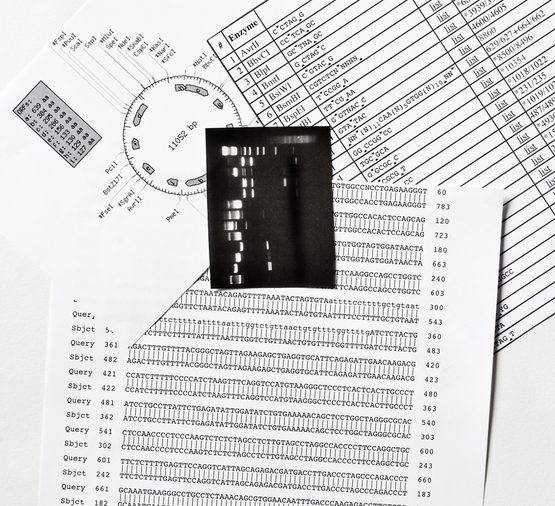
Your size is based on your genes—it’s hopeless to diet
Nope, you really can’t use that as an excuse. Biology doesn’t have to be destiny. “Regardless of your genetic makeup, people can lose weight,” says Yoni Freedhoff, MD, assistant professor of family medicine at the University of Ottawa, director of the Bariatric Medical Institute there, and one of Canada’s foremost experts on obesity and weight loss. Yes, he says, people may have a genotype that makes weight loss more difficult. “But that doesn’t mean you can’t lose weight and keep it off long term,” he says. For some people, adds Hultin, finding out that their genes predispose them to weight gain can be a validation for their weight struggle and provide extra motivation to take action.
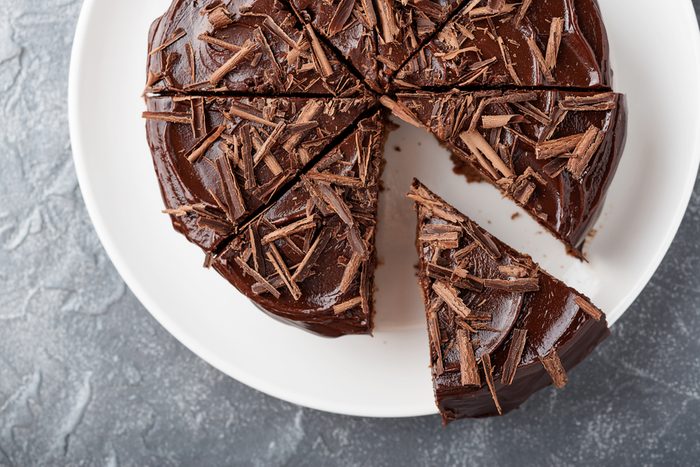
Eat the same amount every day when you’re dieting
Your life isn’t always the same—you have good days, bad days, birthdays, and other social occasions—and your eating is unlikely to be the same, too. And that shouldn’t influence weight loss. In fact, if you can’t be flexible with your eating, you’re unlikely to stick with a weight-loss program. “The goal is to eat the smallest number of calories that will keep you satisfied each day,” says Freedhoff, “and that will differ each day. Depending on the day, you may need to eat more calories.”
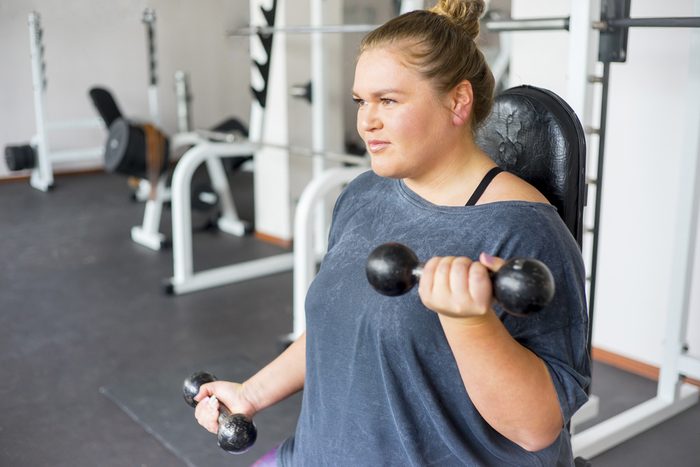
Cardio exercise is the best for weight loss
While it’s true that cardio (aerobic) exercise burns the most calories, you really need to strength train as well. When you shed pounds by dieting, you lose both fat and muscle, and losing muscle can actually slow down your metabolism. Muscle tissue demands more calories in general; it has a higher metabolic rate than fat does. Adding strength training to your workouts will help you keep the muscle you have, help you build new muscle, and assist you in maintaining the weight loss you achieve. Try this 15-minute strength-training workout to get started.

You need incredible willpower to diet
Actually, organizational skills are more important than willpower when you’re trying to lose weight. “Willpower is like a muscle, and it can get tired,” explains Hultin. “As humans, we only have so much willpower each day. So if that’s what you’re relying on, you’re setting yourself up for failure.” Successful weight loss, she says, is much more about preparing yourself with healthy habits. Your willpower might go out the window if you don’t feel well one day, or something in your life goes wrong. “But if you’ve planned your healthy day, prepped your healthy meals, scheduled a visit to the gym, you’re more likely to stick with your plan,” she says.
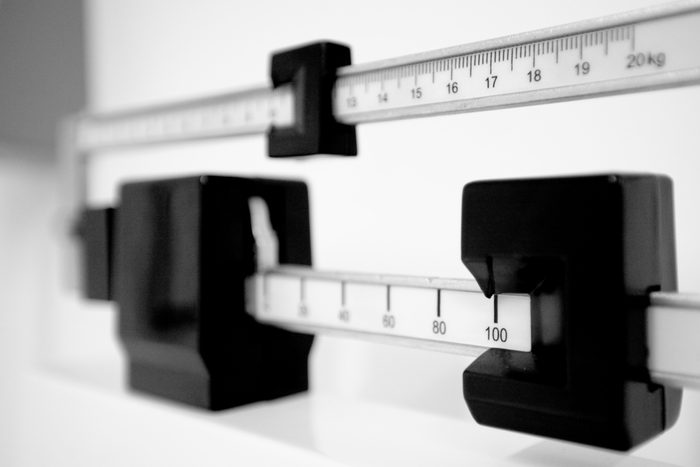
For health benefits, you need to lose a lot of weight
Not at all. “You can see health benefits with even a 5 percent weight loss, says Freedhoff. That means a 140-pound woman’s health will get a big boost after losing just seven pounds. In fact, adds Freedhoff, you can see health benefits even if you don’t lose any weight; all you need to do is make healthy changes like controlling how much sugar you eat and exercising regularly. “Scales don’t measure health presence or absence. They simply measure the gravitational pull of the earth,” he says. Here are 50 easy ways to lose weight naturally.
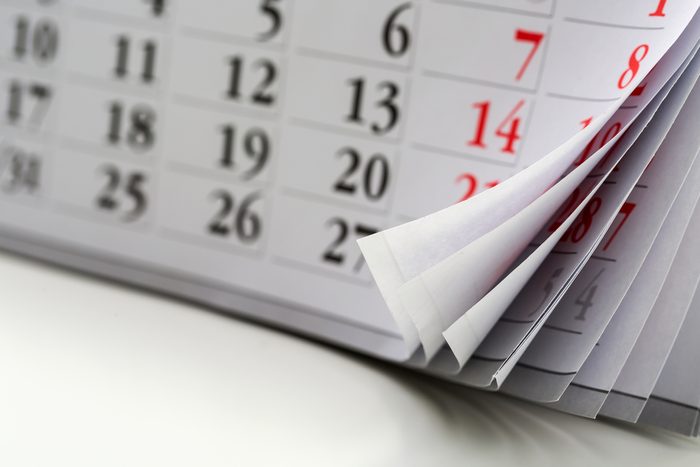
Slow weight loss is better than fast
Not true, says Freedhoff. “There are people who have successfully lost and maintained weight loss who have dropped the weight quickly.” That said, he admits that his personal bias is toward slower weight loss, which gives people time to make permanent changes in their habits rather than having to figure it out afterward in order to sustain the loss.”But some people can turn rapid loss into lots of change,” he says.
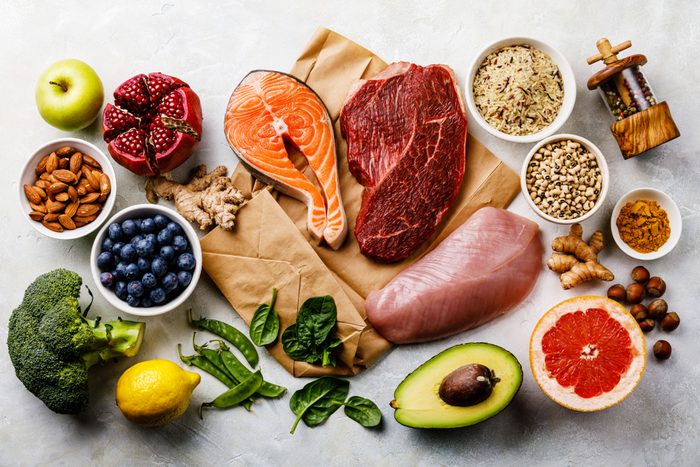
There’s only one good diet
“Nope. There are people who’ve lost weight on the world’s most idiotic diets,” says Freedhoff. “The key is determining whether you like a diet well enough to eat that way forever. Low fat, low carb, keto, etc.—it doesn’t really matter as long as you can stick with it, and it lowers your calorie intake and provides you with sufficient nutrition.” So you don’t have to pay attention to your friends or colleagues touting the latest weight loss plan they read about. What you have to do is take your own personal preference and lifestyle into account. That’s the best diet for you. Don’t miss these 10 weight loss tricks that have nothing to do with diet or exercise.
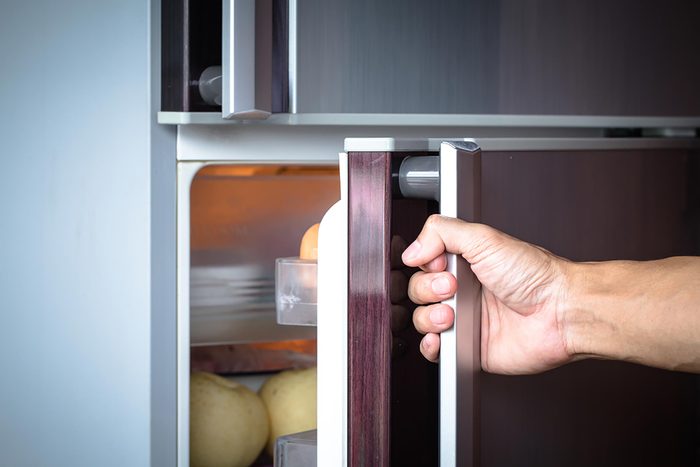
Once you hit your goal, you can relax
Oh, if only that were true. The reality is that if you’re serious about losing weight and keeping it off, you have to change your habits forever. And that’s hard: “The body resists weight loss,” explains Freedhoff. “You get metabolic adaptation and that leads to increased appetite, and to the body burning fewer calories.” So in terms of effort, maintaining a lower weight isn’t any easier than losing the pounds in the first place. But if your weight-loss effort focuses on organization rather than willpower, and you continue that strategy to maintain the loss, you’ll be able to keep the weight from coming back. “Ultimately, the key is not to adopt a strategy of suffering, because suffering increases over time,” says Freedhoff. But being methodical and organized with your diet will give you a feeling of control, and that will help make your changes permanent, he says. Next, these are the 50 things you doctor wishes you knew about losing weight.
